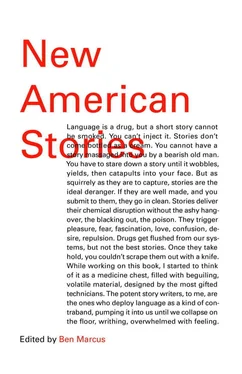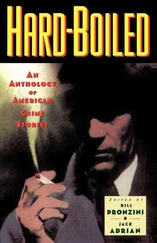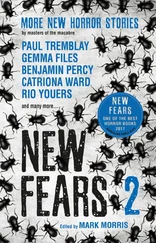And so we filled canteens, kegs, coffeepots, waterproof sacks and rubberized blankets. Errol removed his gumboots and filled them, then ordered me to do the same. Those we kept secret. We crossed the Hundred Mile Desert only at night, following in the moonlight a trail marked by discarded stoves and trunks and mining equipment and the stinking carcasses of mules and oxen.
II. ABANDONED AT CARSON SINK
At the westernmost edge of the Hundred Mile Desert our leaders unhitched the animals and led them ahead in search of a spring, to recuperate and reconnoiter. Errol and I were assigned, with some others, to stay behind and guard the wagons. The gold fields were close, we knew, and as one day passed and another and we were not retrieved, some of us began to suspect we had been deserted, left to die in that sink, thirsty and scalpless.
After three days without word a young man named Doble, of Shelby County, Indiana, proposed that we remainers set out for the diggings on our own. Errol and I were set to go when I experienced a troubling augury.
Since the time when I was very young I had experienced strange phenomena of the mind in which the visual composition of a scene before me summoned a vivid dream I had had of the same scenario. I was then able to recall the dream, including those depictions that had not yet happened in the waking world. I experienced no tingling, weightlessness, chills, nor any other of the physical sensations associated with soothsaying. I felt only a sharpness between my eyes, which could usually be alleviated by removing my eyeglasses and pinching firmly the bridge of my nose.
My auguries came at random frequency, and were of random relevance. Sometimes they allowed me to see only the coming moment, other times I might distinguish the happenings of many months hence. Most events depicted therein were of little significance: our chickens would squabble over a scattering of corn, my youngest sister, Mary, would ruin a pair of our father’s stockings while learning to stitch, winter would be cold. Until Carson Sink the most significant augury I had experienced occurred at the age of eleven, while I watched two men unload a freight wagon outside Edward Boynton’s store. I saw that a keg of brandied peaches Boynton had received was tainted, and would make several people ill. I alerted Boynton of this and he — already suspecting this particular vendor of dishonesty — opened the keg, found the peaches were indeed spoiled, and lobbied a refund. I attempted to convey my condition, as I had come to consider it, to my parents, but Errol was the only who believed me. He was the only who ever believed me.
The visual arrangement which triggered the augury at Carson Sink was my brother’s sack, partially filled, slumped to the right, and beyond it a bare craggy peak and the white sun, all in a line. Clear as a sketch I saw Errol and me following Doble and his company into the mountains. I saw the wagons down in the sink where we would leave them, circled like the spokes of a wheel. I saw three toes of my brother’s bare right foot black with frostbite. I saw man consuming man in the snow.
“What’s that?” Errol said, noticing my affliction. He took me by the arm away from the others. “What have you seen?”
“We cannot go with them.” I recounted for him the augury. “We’ll die,” I finished.
Errol tore off a sliver of fingernail with his teeth and spit it to the ground. “We’ll die if we stay,” he said finally.
“Likely,” I admitted.
“But you say we should stay.”
“Yes.” I had seen his dead body in those mountains as clearly as I saw his live one before me now.
“Damn you, Joshua. How do you expect we’ll get rich without ever setting foot at those diggings?”
I looked at the range, which rose out of the ground as though she knew her peaks were the only thing standing between us and those gold fields. That was the main impression I had during our travels, that the ranges of the West had a way of making you feel watched. “I only know what I’ve seen,” I said, fearing he would strike me.
Errol regarded Doble and the others, who were near ready to depart. He sighed. “Then we stay,” he said. “For now.” He ordered me to return our things to the wagon. Then he approached Doble and informed him of our intent to remain in the sink. “Storm coming,” he said.
Doble looked to the sky, cloudless. “Boy, leave the weather to me.”
“This is not the time to cross,” said Errol.
Doble scoffed. “It’s barely October.”
Errol returned to our wagon.
I whispered that we ought not let them go.
“You’re welcome to elaborate,” he said, “and risk them shooting you to alleviate you of your madness. Kindly leave me out of it if you do.”
We stayed. They went. I did not warn them. I was young and a coward, if you want to know the word. At the time I thought no fate worse than being considered a lunatic.
Errol and I watched from the valley as a tremendous storm took the range. It lasted three days, and the snow remained for ten more. Each night we built a fire and sat shuddering before it, the wagons round ours empty as fresh-built pine boxes. We did not speak of the storm nor the men up in it excepting the first day, when Errol said he would not care for a stroll in those hills right now, and I said I would not, either. That was, I think, his way of thanking me.
The report reached the diggings before we did. It went round and round and still goes round today: an expedition perished under a bad storm. The Missouri Overland Mutual Protection Association. Trapped in the mountains with nothing to eat but their own dead.
III. THE RESCUING SHE-ASS
We survived in the sink on quail which Errol shot and what scant rations the others could not carry. But both supplies and game swiftly dwindled. One night when I lay awake considering starvation and Indian ambush and cougar attack and worse, I saw shadows moving along our canvas. I remained in my ruck, petrified, not even reaching for the knife near my feet nor the musket near my sleeping brother’s. The shadows grew monstrous in size until finally a dark shape loomed at the rear of the wagon. When the form emerged through the slit in the canvas, I nearly laughed aloud at my own cowardice.
It was the head of a burro. She stared at me, ears twitching, an almost intelligent expression on her long face. I donned my spectacles and climbed quietly from the wagon. I ran my hand along her coarse mane and dust rose from it. I did not recognize the animal. She likely belonged to another caravan and had been abandoned, like us.
In the dimness I saw that her back bore the black cross of Bethlehem. I traced my fingers along this coloring and felt beneath it each individual knob of her spine. I wished I had an apple to give her, or a pear. I was overcome then by the melancholy that had been accumulating in me since I left Ohio. I wrapped my arms around the beast’s soft brown neck and wept. The jenny blinked her long-lashed glassy eye and began to walk. I, trail-weary and homesick and perhaps resigned to death, let her pull me along, stumbling and wetting her mange with my tears.
We walked together through sand and scrub and rock for I knew not how long. We crested a hill and then another. And then the old girl stopped. Before us, quaking in the moonlight, was the giant spherical head of a cottonwood. It was the first tree I had seen in seven hundred miles.
I ran down the hill to the tree, stumbling, and fell finally at its raised roots. Beside the cottonwood was a stream, icy and clear. I drank from it, drank and drank and drank. The water soon returned some of my faculties and I turned to account for the burro. She stood, miraculously, on the hill where I left her.
Читать дальше










![Женя Джентбаев - neo futura [stories]](/books/692472/zhenya-dzhentbaev-neo-futura-stories-thumb.webp)

